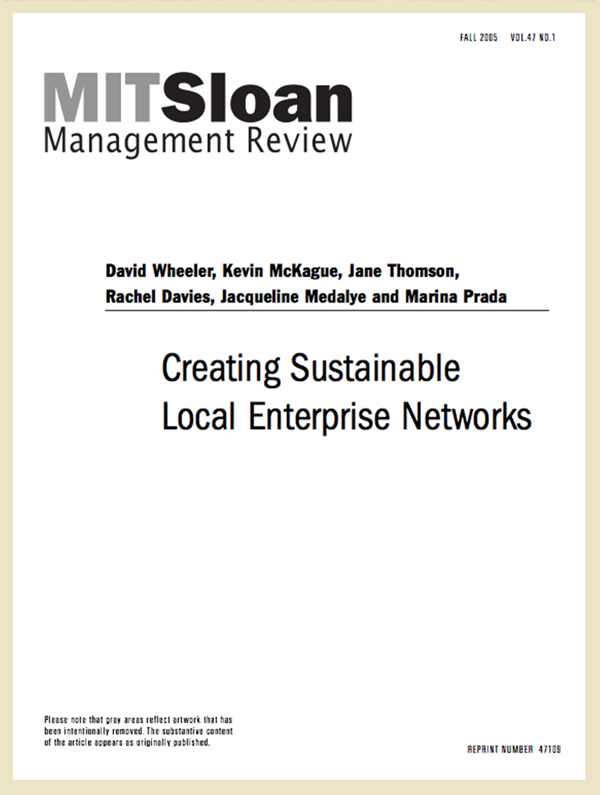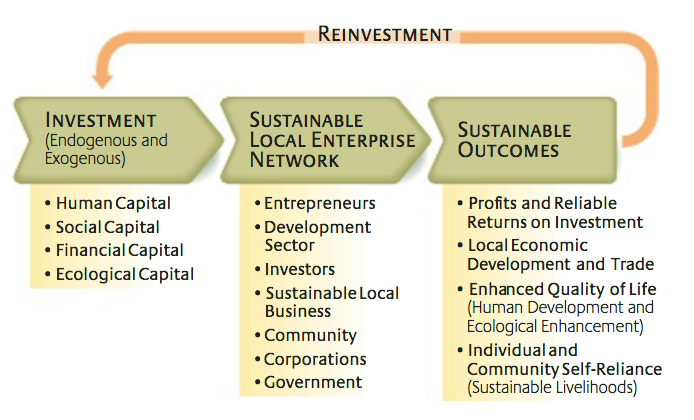Abstract
By analyzing 50 cases of successful sustainable enterprise in developing countries, the authors developed a conceptual framework they call the Sustainable Local Enterprise Network (SLEN) model. Analysis of the 50 cases revealed that examples of successful sustainable enterprise in developing countries often involve informal networks that include businesses, not-for-profit organizations, local communities and other actors. These networks can lead to virtuous cycles of reinvestment in an area’s financial, social, human and ecological capital. Successful SLENs, the authors found, require at least one business enterprise to ensure the network’s financial sustainability and serve as its anchor; however, that anchor role may be played by a cooperative or a profitable social enterprise launched by a non-governmental organization. While multinational corporations were sometimes part of the SLENs studied, entrepreneurs, nonprofits and sustainable local businesses were more common.

